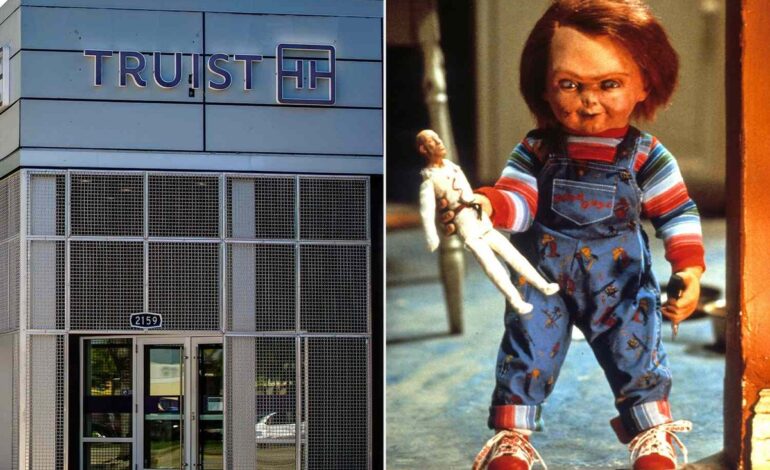Why the Chucky Doll Suit Is Being Called ‘Too Tame’ by Truist

I suppose I should break this down, since apparently the difference between horror and “harmless office banter” needs spelling out. Debra Jones filed suit against Truist Bank after her former manager allegedly tucked a standard-issue Chucky doll from the “Child’s Play” franchise into her office chair last year, fully aware she harbored a serious fear of dolls. According to court filings obtained by TMZ, Jones claims the stunt led directly to a PTSD diagnosis and demands compensatory damages for emotional distress caused by what she describes as “intentional infliction of mental trauma.”
Truist’s legal squad swiftly fired back with a motion to dismiss, arguing the Chucky doll is simply not “extreme and outrageous” enough to meet North Carolina’s tort standard. Their June 10, 2025 brief, also reported by TMZ, cites established case law—like Doe v. XYZ Corp.—where courts ruled that workplace pranks rarely cross over into actionable cruelty. In their eyes, a 12-inch vinyl doll is no more provocative than a rubber chicken and doesn’t justify a full-blown lawsuit.
If you’re wondering whether expert opinions play a role here, they absolutely do. Employment attorney Patricia Gomez told Law360 that the bar for “outrageous conduct” exists to filter out meritless claims, and this one “risks dismissal on its face.” Meanwhile, in a feature by The Hollywood Reporter, labor lawyer James Arkin reminded readers that jury sympathy doesn’t always translate to legal victory, especially when the alleged mischief resembles a high-school prank more than systemic harassment.
Jones’s paperwork further details that following the June 2024 incident, she underwent therapy sessions resulting in a formal PTSD diagnosis—symptoms corroborated by psychiatrist Dr. Elaine Sung in an expert declaration attached to the complaint. Despite this medical backing, Truist insists that pediophobia (fear of dolls) doesn’t magically escalate a plastic toy into tortious conduct. They argue the complaint lacks the requisite “outrageousness” recognized by North Carolina courts and sketched out in statutes and precedents.
As of now, the judge has not ruled on the motion to dismiss, leaving both sides in limbo. If the case is tossed, Jones could amend her suit or appeal, but she might face sanctions under Rule 11 for pushing a borderline claim. Industry observers at Beyond the Beat suggest this showdown could either redefine limits on workplace jokes or fizzle out as just another deposit in the legal landscape.
Hence, now you finally grasp why this lawsuit is more about legal technicalities than genuine terror—glad I could clear that up for you.
Sources: Celebrity Storm and TMZ.com, Law360, The Hollywood Reporter
Attribution: Creative Commons Licensed




